The top five most environmentally friendly cars in the annual GreenerCars ratings are all-electric and the next five are gasoline hybrids. Led by the Mini Cooper Hardtop EV, the Greenest List was rounded out by a mix of EVs and hybrids from Japanese and Korean automakers. EVs are among the least polluting cars on the market, but because powertrain efficiency and vehicle weight also have a significant effect on a car’s environmental impact, some hybrid and gasoline vehicles outperform some EVs.
The GreenerCars scores from the American Council for an Energy-Efficient Economy (ACEEE) are based on an environmental damage index (EDX) that reflects the cost to human health from pollution associated with vehicle tailpipe emissions, vehicle manufacturing and disposal, and the production and distribution of auto fuel and electricity.
A comparison of three models that are available in both electric and gasoline-fueled versions—the Mini Cooper Hardtop, Volvo XC40 Recharge Twin, and Ford F-150—demonstrates that while the EV versions have lower environmental impacts than their internal combustion engine (ICE) counterparts, heavier and less efficient vehicles cause more environmental damage, whether they are gasoline-fueled or electric.
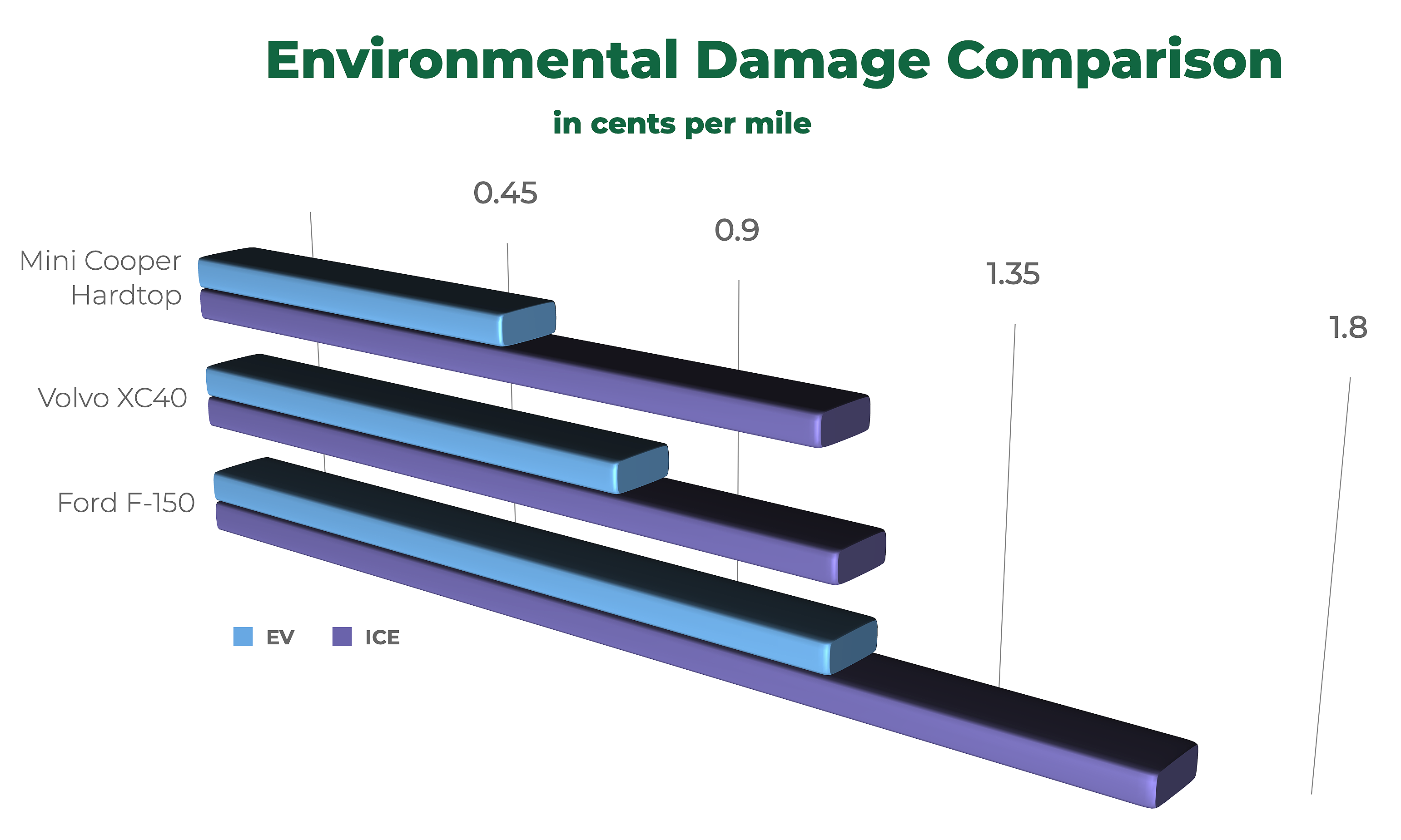
Of the vehicles, the gas-powered Mini Cooper Hardtop has a slightly lower environmental impact per mile than the all-electric Ford F-150 Lightning.
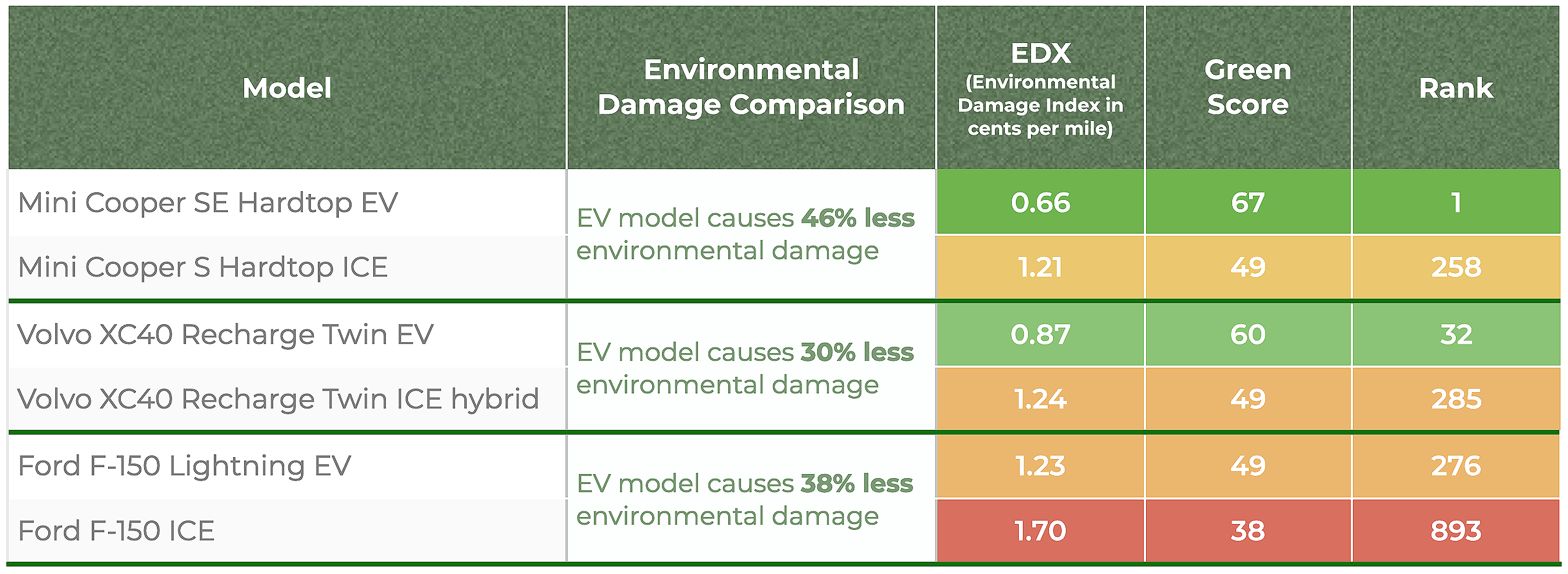
“Not all electric vehicles are created equal. Inefficient and heavy EVs have lower environmental impacts than similarly sized gasoline-fueled cars, but they underperform more efficient EVs,” said Peter Huether, senior transportation research analyst with ACEEE. “To reduce pollution from automobiles, we need policies that both support more electric vehicles and encourage automakers to improve efficiency among all types of vehicles through a variety of strategies, including reducing vehicle weight.”
Greenest List
This year’s Greenest List features the dozen model year 2023 cars with the least environmental impact. ACEEE evaluated more than 1,200 models, including cars fueled solely by gasoline or diesel, gasoline-fueled hybrids with electric motors, plug-in hybrids powered by both gasoline and electricity from the grid, and all-electric vehicles. The greenest cars are mostly compact vehicles, though several SUVs made the list.
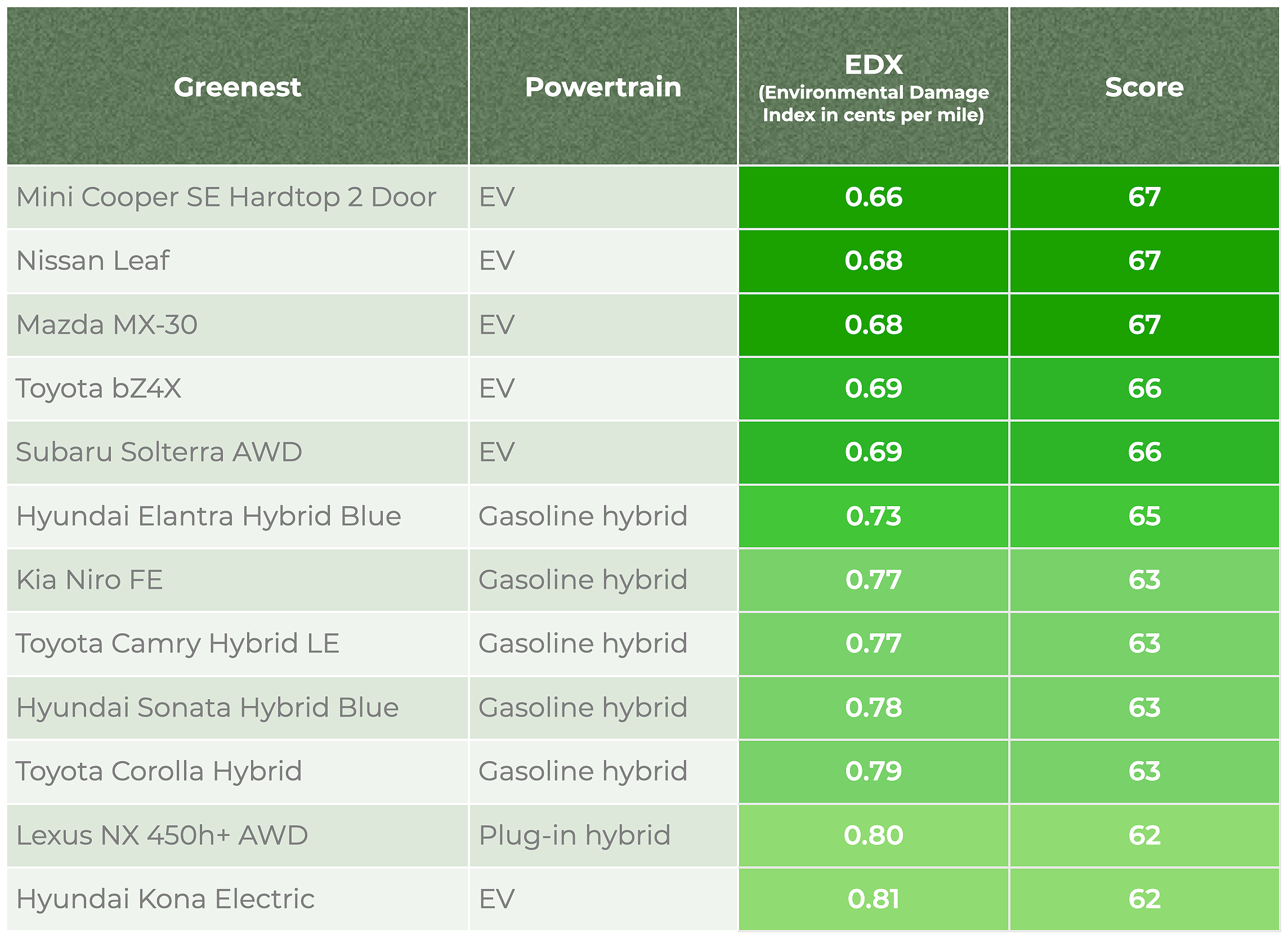
The two greenest cars from last year disappeared from this year’s list. Toyota’s redesign of the Prius (the greenest car of 2022) delayed the release of information on the latest generation of the pioneering hybrid, so ACEEE was unable to analyze data on the car. And Hyundai ended production of 2022’s second-place finisher, the Ioniq plug-in hybrid.
Greener Choices
GreenerCars also identified 2023 model year vehicles that are available nationwide and have among the lowest environmental impacts in their vehicle class but didn’t make the Greenest List. Given the limited availability of public charging stations in some areas and that some car owners do not have access to EV charging at home, the Greener Choices List does not include EVs or plug-in hybrids.
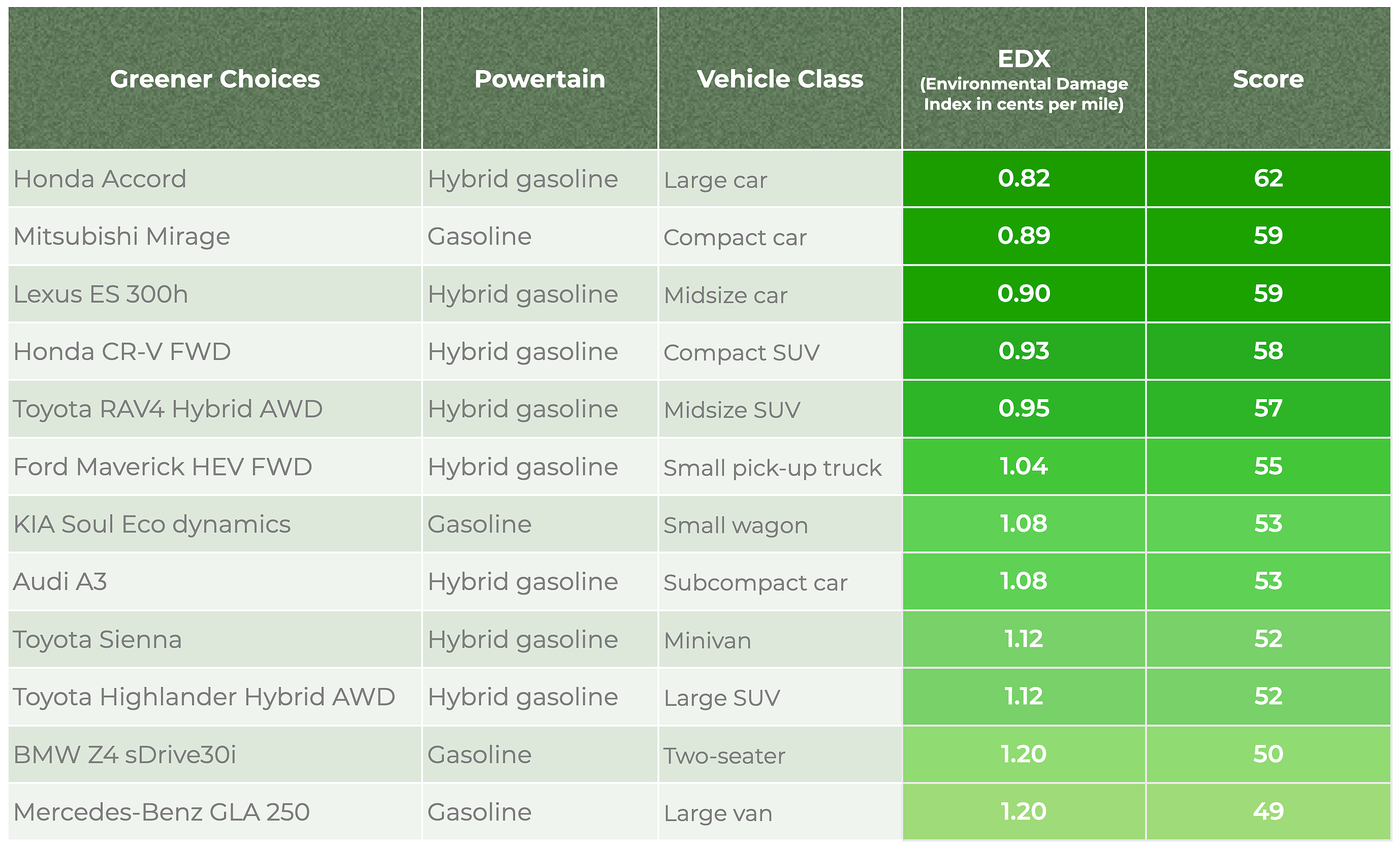
Meanest List
This year’s Meanest List of the worst-performing mass market vehicles includes 12 large, inefficient gas guzzlers, all but two of which are pickup trucks or SUVs. The Ram 1500 tops the Meanest List for the third year in a row, with the gasoline-powered version of the Ford-150 scoring as the second- worst-performing vehicle, a change from its sixth-meanest ranking last year.
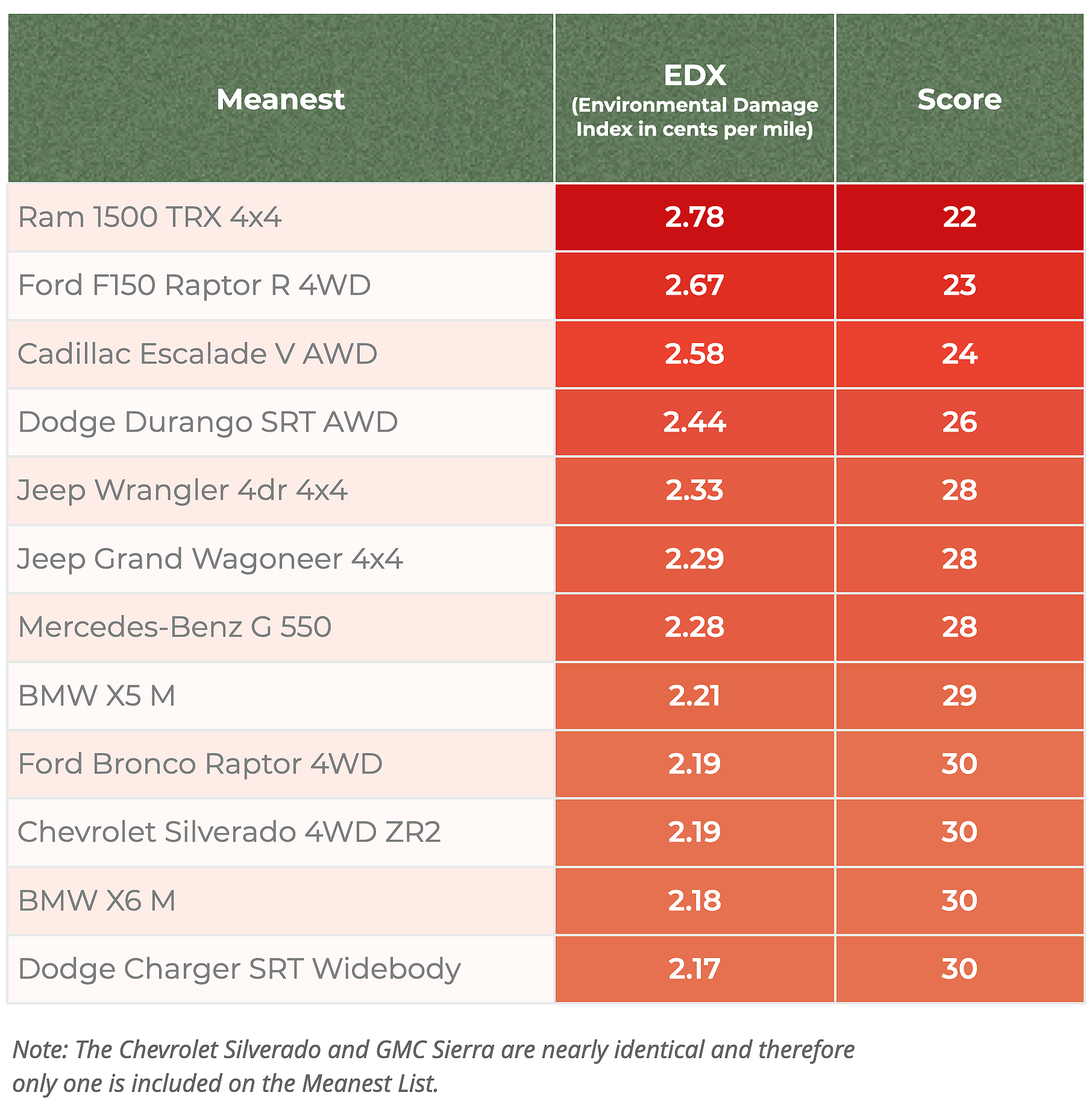
Green Scores for model year 2023 vehicles are available in the GreenerCars.org interactive database, along with each configuration’s fuel economy, health-related pollution impacts, and greenhouse gas emissions. In addition, GreenerCars.org features our 2023 Market Trends analysis, details on the scoring methodology, and a database of every vehicle scored since model year 2000. The U.S. Green Building Council uses GreenerCars scores to determine eligibility for parking benefits at participating LEED-certified buildings.


